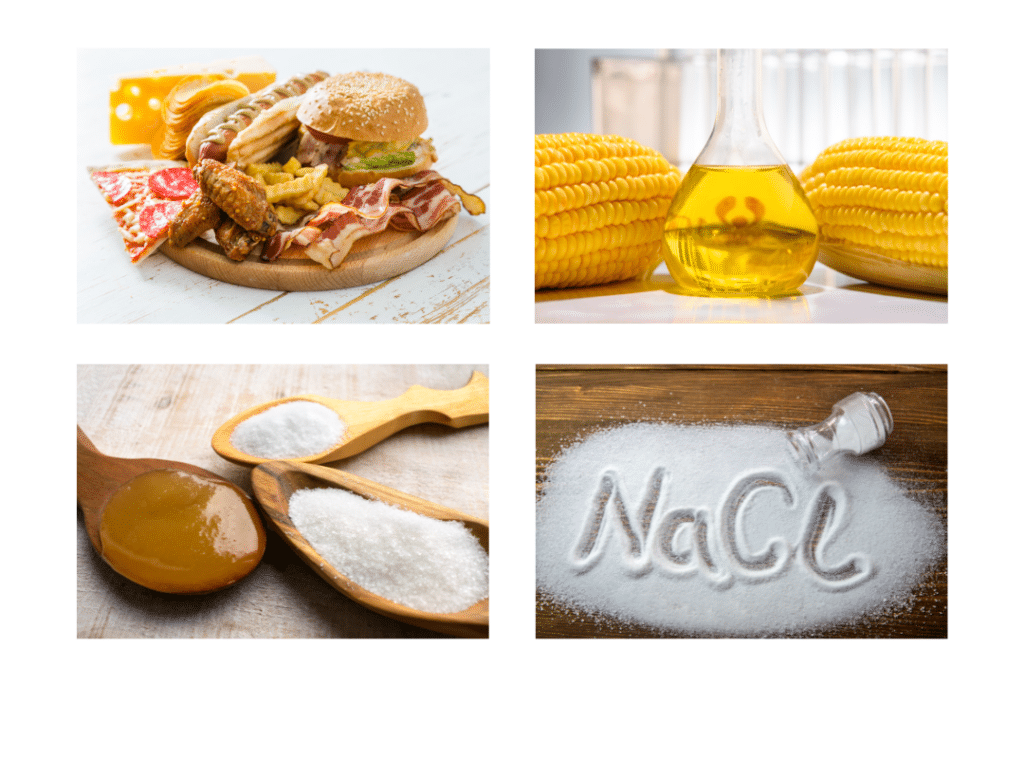What Are the 5 Worst Foods for Memory?
Boosting brain health hinges on knowing what are the 5 worst foods for memory, so let’s dive in. In this guide, we’ll highlight the top offenders that impair cognitive function, backed by science. You’ll also discover better choices to support mental clarity and longevity.
We’ll also explore what are the worst foods for memory are, including tips on whether eggs fight memory loss, and reveal what is the #1 worst eating habit for memory loss? Plus, we’ll tackle foods that cause brain fog and share what are the 5 best foods for memory—so you can swap unhealthy foods for brain-boosting staples.
Worst Foods for Memory
From sugar-laden drinks to fried delights, it’s vital to know what are the worst foods are for memory so you can protect your cognitive health. This two-paragraph intro sets the stage, linking diet to sharper focus and better cognition.
Diet holds immense power in influencing our memory. By understanding what are the 5 worst foods for memory, you can center your meals on brain-friendly options, reduce mental fog, and support long-term brain health. This article not only identifies the memory-wrecking foods but also offers swaps and strategies to enhance mental vitality.
Internal links included below were pulled directly from the original blog post to maintain connectivity and context.

1. Trans Fats
Why They Hurt Your Brain
Trans fats, commonly found in margarine, packaged snacks, and fried goods, severely impact cognition. They reduce blood flow to the brain and foster inflammation, which is highly damaging. Studies show trans fat consumption can elevate the risk of neurodegenerative disease.
Better Alternatives
- Swap margarine for real butter or avocado oil
- Choose whole foods with healthy fats (e.g., nuts, seeds, olive oil)
Internal link reminder: You can explore more about nutritional strategies in the tailored nutritional strategies for dementia.
2. Sugary Beverages
The Damage Sugar Causes
Sugary drinks are sugar-packed with high-fructose corn syrup. They spike insulin levels, contributing to insulin resistance and obesity, both connected to memory decline and brain shrinkage.
Swap These Drinks
- Trade soda for flavored sparkling water
- Drink herbal or unsweetened teas
Internal link included: Discover more about balanced eating in good nutrition.
3. Excessive Alcohol
Why It’s On the List
Overdrinking alters brain circuits, impairs learning, and shrinks brain volume. Long-term heavy use exacerbates nutrient deficiencies and worsens memory issues.
Stick to Safe Limits
The CDC suggests up to one drink daily for women and two for men. Consider swapping alcohol with sparkling water or kombucha for a brain-friendly alternative.
4. Refined Carbohydrates
Refined Carbs and Memory
Refined carbs like white bread, sugar-laden pastries, and breakfast cereals spike blood sugar and raise Alzheimer’s risk while causing mental fatigue and foods that cause brain fog .
| Refined Carbs | Smarter Swaps |
| White bread | Whole grain bread |
| Pastries | Oatmeal |
| Sugary cereals | Quinoa |
| White rice | Brown rice |
| Snack cakes | Fresh fruit |
5. Fried Foods
How Frying Affects the Brain
High in bad fats and often combined with sodium and sugar, fried foods damage blood vessels, impairing cognition and boosting memory loss risk .
Smarter Substitutes
- Choose baked or air-fried veggies
- Try baked sweet potato fries instead of their deep-fried counterparts
Also, check tailored nutritional strategies for cognitive support.
Bonus Section: Habits and Foods That Cause Brain Fog
Beyond foods, what is the #1 worst eating habit for memory loss? Overeating sugary or refined meals can lead to chronic inflammation, an enemy of memory and clear thinking. Regularly skipping balanced meals or overloading on processed carbs also worsens foods that cause brain fog.
Another hot topic: do eggs fight memory loss? Eggs are rich in choline, which aids memory and cognitive function. Including them alongside leafy greens and fatty fish can support healthy brain activity—highlighting what are the 5 best foods for memory.
What Are the 5 Best Foods for Memory?
- Eggs – Packed with choline for neurotransmitter support
- Fatty fish (e.g., salmon, sardines) – High in omega-3s to reduce inflammation
- Blueberries – Antioxidant-rich for protecting brain cells
- Leafy greens – Vitamins and minerals for cognitive health
- Nuts and seeds – Healthy fats and minerals to boost memory
Featuring these choices helps counterbalance what are the worst foods for memory and can crowd out harmful options.
Incorporate Brain-Healthy Habits
- Use olive oil or avocado oil instead of trans fats
- Drink plenty of water instead of sugary drinks
- Limit alcohol to moderate levels
- Pick whole grains, fruits, and vegetables over refined carbs
- Bake or air-fry foods rather than deep-frying
Revised Conclusion Title
Take Charge: Protect Your Brain with Smart Eating
Putting away the five worst foods for memory—trans fats, sugary beverages, too much alcohol, refined carbs, and fried foods—is like safeguarding your brain’s future. Include what are the five best foods for memory are to enhance sharpness and clarity further. Replace bad habits with brain-friendly practices such as choosing eggs, leafy greens, nuts, berries, and fatty fish. These simple swaps go a long way toward boosting recall, focus, and overall brain health.
Add external insights from these trusted sources:
- Harvard Health: Diet and brain health
- National Institute on Aging: Nutrition and the aging brain
- Mayo Clinic: Alcohol and the brain
Check out Westmont at San Miguel Ranch’s programs for more brain-boosting strategies. Want a deeper dive? Schedule a tour today!
How Do The Costs Of Moving Into A Quality Senior Care Community Compare With The Costs Of Staying At Home?Compare The Costs of Senior Living vs Staying at Home
Frequently Asked Questions
What is the number one food that fights dementia?
Leafy green vegetables, such as spinach and kale, are considered the number one food that helps fight dementia. They are rich in folate, vitamin E, and other brain-boosting nutrients that protect against cognitive decline. Regular consumption of greens has been linked to slower mental aging and improved memory. Adding them to daily meals can make a noticeable difference in brain health over time.
Which food is best for increasing memory?
Fatty fish like salmon and sardines are among the best foods for increasing memory. They are high in omega-3 fatty acids, which are essential for brain function and memory retention. Studies show that people who consume more omega-3s tend to have better cognitive performance. Including fish in your diet at least twice a week is highly recommended.
What drinks improve memory?
Green tea, beet juice, and coffee are popular drinks that improve memory. Green tea contains antioxidants that support brain health and mental alertness. Beet juice improves blood flow to the brain, enhancing cognitive function, while coffee boosts focus and short-term memory. Drinking these in moderation can support mental sharpness and long-term memory.
What is the number one food that causes memory loss?
Highly processed foods, especially those high in trans fats like fried foods and baked goods, are known to contribute to memory loss. These foods can cause inflammation and damage to brain cells over time. Regular consumption is linked to reduced brain volume and cognitive decline. Avoiding these and opting for whole, nutrient-rich foods can help protect memory.









